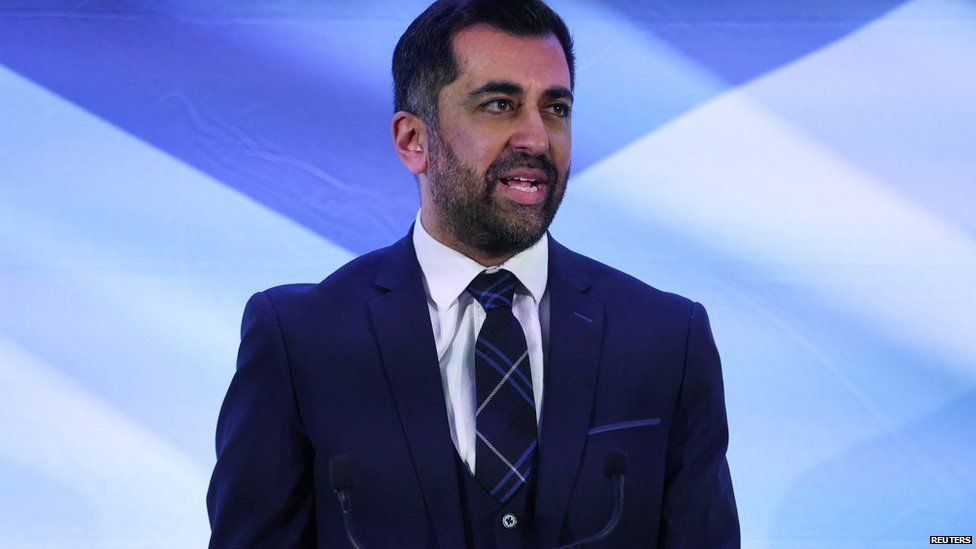ARTICLE AD BOX
 Image source, Reuters
Image source, Reuters
By Chris Mason
Political editor, BBC News
It illustrates the clout and influence of the Scottish National Party - obviously in Scotland, but also beyond - that Humza Yousaf's election as Nicola Sturgeon's successor as SNP leader was watched with fascination here at Westminster.
The reason is simple: the numbers.
The SNP group of MPs is the third largest in the Commons; it holds 45 of Scotland's 59 seats.
By contrast, Labour hold just one.
They won 41 when they last won a general election in 2005.
The actions of Sir Keir Starmer, Labour's leader, since Nicola Sturgeon announced her resignation last month are not subtle: he's visited Scotland four times.
He hopes his party's buoyant opinion poll ratings and the departure of Ms Sturgeon could amount to an inflection point.
Not the near-instant shrivelling of the SNP or anything like it, but a modest revival for Labour that could help in his long haul to Downing Street.
They eye with increasing hope the urban and suburban seats in and around Glasgow and Edinburgh in Scotland's Central Belt and hope to reach a tipping point where perhaps a dozen or so Westminster seats are within reach.
But the election of Mr Yousaf gives the SNP, at least immediately, a softer political landing than a Kate Forbes victory would have done.
The Scottish Green Party has renewed its willingness to serve in government alongside the SNP under Mr Yousaf, which it wouldn't have done under Ms Forbes.
The SNP's political opponents also know that in the short term a new first minister will command media attention: being sworn in, forming a cabinet, conversations with the prime minister and the King.
Plus a natural curiosity from a Scottish electorate wondering how Mr Yousaf will get on.
But beyond that they spy opportunity: a newbie without the profile of his two predecessors, Nicola Sturgeon and Alex Salmond, leading a government with the accumulated baggage of a decade-and-a-half in office.
But the politics of tomorrow will follow the governing of now: and the relationship between prime minister Rishi Sunak and soon to be Scottish first minister Humza Yousaf.
Formalities such as a congratulatory phone call are expected once Mr Yousaf is confirmed as first minister.
The Secretary of State for Scotland, Alister Jack, said "too often in the past Holyrood ministers have sought conflict with Westminster, simply to further their goal of separation" and pleads with the new Scottish government to focus on "improving education, tackling drugs deaths, and ensuring people have the reliable transport links they need."
A couple of sentences that quickly gets to the crux of relations between Holyrood and Westminster, when the government in London wants to keep Scotland in the UK, and the government in Edinburgh does not.
However cordial or otherwise the personal relations between the prime minister and the new first minister, that tension will remain.
The truth is Ms Sturgeon, for all her success at election after election, failed in her ultimate mission of delivering Scottish independence, and ran out of immediate routes to bring about another referendum on it.
And there are no immediate routes for Mr Yousaf either.
Don't be surprised to see Mr Sunak politely point out and illustrate he is Scotland's prime minister, irrespective of the change in personnel at Holyrood.
The constitutional stand-off is unchanged: the SNP argue they have a democratic mandate for another independence referendum.
And the UK government continues to say no.

 1 year ago
26
1 year ago
26








 English (US) ·
English (US) ·